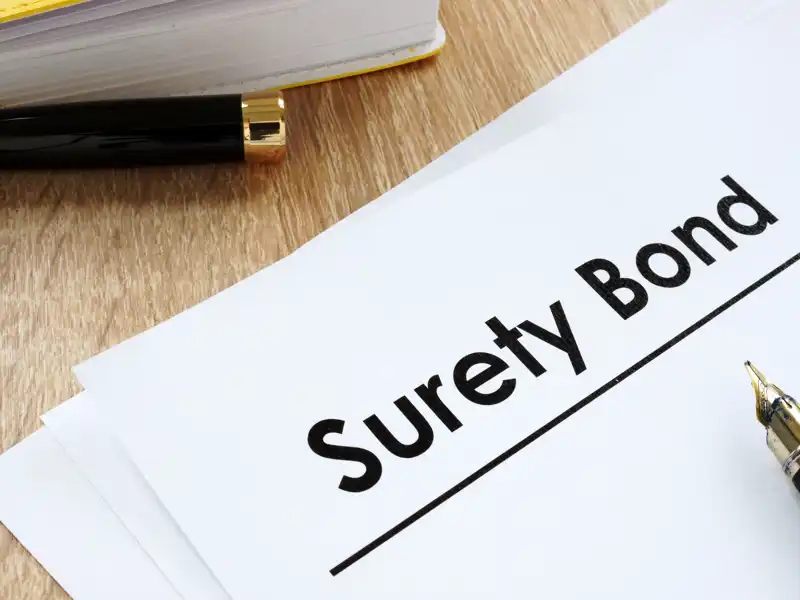
Is It Necessary for Me to Be ed and Insured?
In numerous sectors, independent contractors and business proprietors must obtain a license or permit bond to legally operate. These bonds are mandated by federal, state, and local governments to safeguard both the authorities and the public if a business fails to comply with relevant laws and regulations. According to the US Small Business Administration, being bonded involves a signed agreement that offers protection to the project owner.
Should you intend to engage in business with the federal government for a product or service contract worth $150,000 or more, you must secure a surety bond either during the bidding phase or as a prerequisite for being granted the contract. Additionally, if your business employs staff, federal law mandates that you carry workers' compensation, disability, and unemployment insurance, irrespective of whether you are conducting business with the government or not.
State and local government contracts differ in terms of the maximum contract size that necessitates a surety bond, yet the regulations closely resemble those applied to secure federal contracts. Private organizations, including non-governmental organizations (NGOs) and corporations, typically mandate that businesses contracting with them be bonded, regardless of the contract award's value. To conduct business directly with any government entity — be it federal, state, or local — you must have insurance.
If your business is solely focused on providing products or services to private consumers, your specific state and municipality will dictate whether bonding and insurance are required. The regulations for business insurance at the state and local levels vary based on the nature and scale of your business, its location, and the parties with whom you plan to conduct business.
Even if you discover that you are not legally obligated to be bonded and insured, it is generally advisable to secure a surety bond and insurance for your business or professional services. While any claims settled by your surety company will eventually need to be reimbursed by you, bonds offer protection against losing everything at once and eliminate the need to deposit substantial cash amounts as a bond substitute. As for insurance, don't deceive yourself into believing that your business structure alone can shield you from liability. Your protection remains limited, and both personal and business assets can still face significant risk. In our increasingly litigious society, obtaining business insurance is always wise, particularly if you are dealing with banks.
What Kind of Surety Bond Should I Obtain?
Surety bonds for businesses typically belong to either the commercial or contract bond categories. While our team is available to assist you in identifying the specific bond you require, we provide the following as a preliminary guide.
Commercial bonds are almost always necessary for conducting business with a government agency, although contract bonds are often required as well. These bonds safeguard the government and certain public sectors against losses incurred if the bonded business (the principal) fails to comply with relevant laws, rules, or regulations. Permit and license bonds are included in this category.
The surety company is obligated to settle the claim on the bond if the principal cannot address the issue independently. Subsequently, the principal must reimburse the surety company. It is advantageous for the principal to resolve issues before a bond claim is initiated. Certain activities related to bond claims can lead to the cancellation of bonds necessary for obtaining licenses and permits.
The second primary category of surety bonds for businesses is known as a contract bond. These are often referred to as "construction surety bonds" because they are typically required in the construction sector. However, contract bonds are also applicable to other service and production industries. Listed below are the four main categories of contract surety bonds.
- Performance Bond - Provides customers with the confidence that your business will fulfill its work obligations as agreed upon, adhering to the terms and conditions outlined in the work agreement.
- Payment Bond - Guarantees that employees, subcontractors, and suppliers are safeguarded against the risk of non-payment.
- Bid Bond - Ensures that if a business wins a contract, the successful bidder will indeed enter into the contract, fulfill all payment obligations, and secure any necessary performance bond.
- Ancillary Bond - Ensure that requirements of the contract that are not directly performance-related are followed, such as worksite rules and regulations or that certain benchmarks in the project are met on time.
What Kind of Business Insurance Do I Need?
Only a licensed insurance agent possesses the expertise to guide you on the appropriate insurance for your business. While NFP is a surety company, we also operate as an insurance agency. The primary categories of business insurance include General Liability, Product Liability, Professional Liability, Commercial Property Insurance, Home-based Business Insurance, and a Business Owner's Policy. The necessity for any of these policies depends on various factors, such as your business location and partnerships. We will engage with you to understand the specifics of your business operations and can recommend the most fitting policy or policies tailored to your unique business needs.
How Much Does a Bond Cost?
License and permit bonds are typically quite economical, as the required bond amount is determined by a government body that aims to promote business. The expenses associated with other surety bonds are influenced by several factors, including the extent of coverage, the amount of coverage required, the duration of coverage, and your company's overall financial standing. When assessing your bond, sureties will evaluate your company's financial robustness and its current ability to fulfill the contract successfully. This assessment will involve examining your business's equity, debt, cash flow, and working capital, along with an analysis of your general character and past performance record.
Bonds typically represent a minor fraction of the total coverage required. Some bonds are determined solely by your company's character and financial standing, while others are calculated as a percentage of the contract's total value. Although costs and underwriting criteria vary among companies, most performance bonds, for example, usually range from 0.5% to 2% of the contract's value. This implies that for a construction contract worth $500,000, the performance bond payment would be between $2,500 and $10,000.
What Does Insured and Bonded Mean
We hope we answered the question. Contact NFP for all your bonding insurance needs. We are an insurance provider offering bonding services and expertise across all insurance lines.




